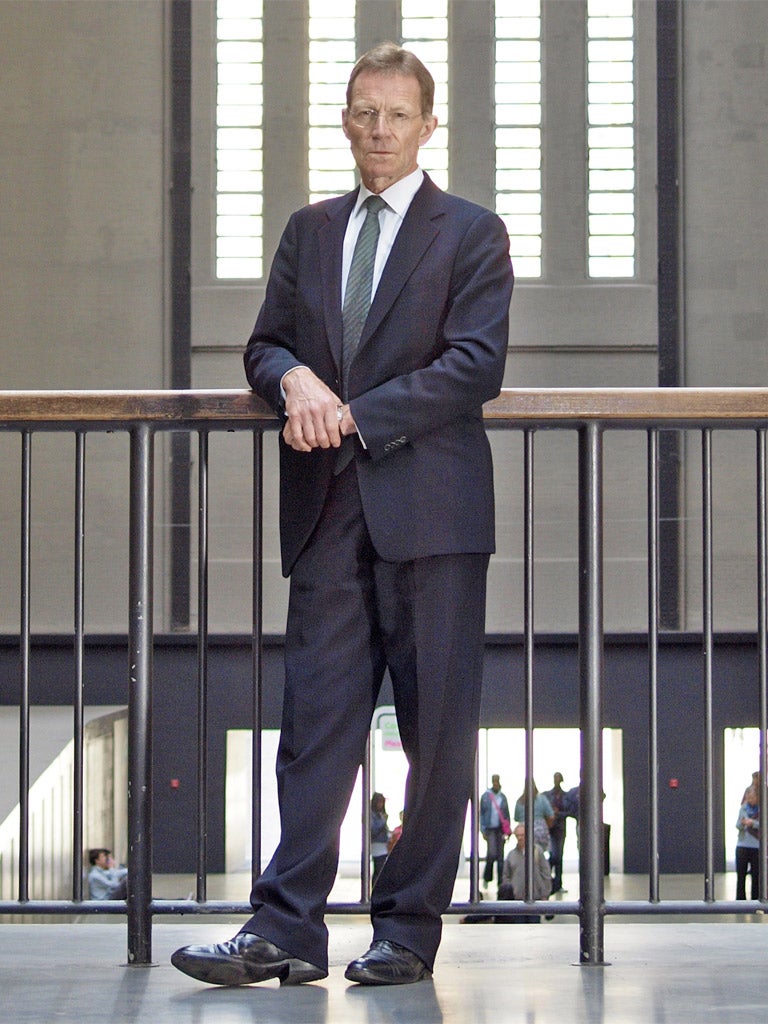Tate boss warns Britain's 'cultural edge' imperilled by GCSE reforms

Your support helps us to tell the story
From reproductive rights to climate change to Big Tech, The Independent is on the ground when the story is developing. Whether it's investigating the financials of Elon Musk's pro-Trump PAC or producing our latest documentary, 'The A Word', which shines a light on the American women fighting for reproductive rights, we know how important it is to parse out the facts from the messaging.
At such a critical moment in US history, we need reporters on the ground. Your donation allows us to keep sending journalists to speak to both sides of the story.
The Independent is trusted by Americans across the entire political spectrum. And unlike many other quality news outlets, we choose not to lock Americans out of our reporting and analysis with paywalls. We believe quality journalism should be available to everyone, paid for by those who can afford it.
Your support makes all the difference.Some of Britain’s leading cultural institutions, spearheaded by the Tate, have warned that Britain could lose its “cultural edge” if the Government fails to make the arts a core subject of its GCSE reforms.
The Department of Education last week announced proposals to replace GCSEs with English Baccalaureate certificates. Art failed to feature as a core subject, but Tate director Sir Nicholas Serota believes it should be afforded the same status as reading, writing and arithmetic.
He said yesterday: “There is a real risk that fewer and fewer schools will provide learning opportunities in the arts. The UK’s leading edge in creativity may be lost. We cannot deprive an entire generation of children of the cultural skills that they will need.”
The gallery’s stance is supported by the National Theatre, the Royal Shakespeare Company and the British Museum.
Sir Nicholas said: “The way the proposals have been formulated make it fairly clear that art, design, music, drama, dance will be pushed to the margin, and there will be very little time in the curriculum for those subjects.”
This is the latest attack on the arts after the Government has slashed funding, and disproportionately cut teacher training positions in art and design roles. “You could say the writing is on the wall and we need to respond,” Sir Nicholas said.
The Tate director hailed “creative and innovators” produced by the British system from architects Richard Rogers and Sir David Chipperfield, to Apple designer Sir Jonathan Ive and artist Rachel Whiteread. “Visual learning isn’t just about painting and drawing. It is also fundamental to creating engineers, scientists and others who will shape the world we live in in the future.”
He said: “These people are fundamental to the way in which we regard ourselves as a society and present ourselves as a society. By making art a part of the natural curriculum we will give artists, designers, engineers, creators of the future the opportunity to develop their imagination and skills that are vital.”
The Tate’s research found young adults were three times more likely to take a degree if they are exposed to the arts at school from an early age. It also found people were 20 per cent more likely to vote and twice as likely to volunteer later in life.
“It shows the art in school is crucial not just in school but for society,” Anna Cutler, Tate’s director of learning, said. “It should not be considered an added extra.”
The Government was to publish a national plan for learning in the arts at schools by autumn, but it has been delayed. Sir Nicholas said: “We earnestly hope that it will be published before Christmas.”
Sir Nicholas said: “Anyone who saw Danny Boyle’s opening ceremony will be aware that creativity and the arts play a fundamental part in British society. It’s one of the few areas of economic endeavour which has continued to grow in spite of the recession.”
Join our commenting forum
Join thought-provoking conversations, follow other Independent readers and see their replies
Comments